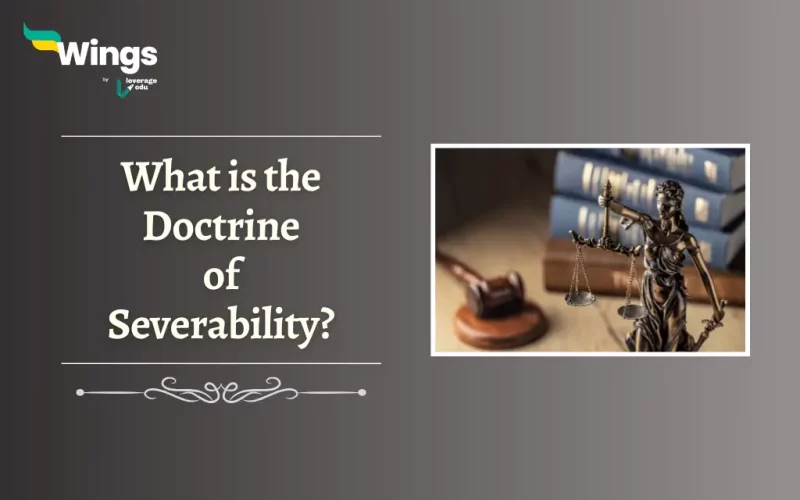The Doctrine of Severability addresses the validity of laws or contracts when specific parts are found to be invalid. The Doctrine is also known as the separability clause or separability principle. Furthermore, the Doctrine of Severability basically allows a Court to “sever” or remove the invalid parts while keeping the remaining Provisions. However, this is as long as the remaining parts can function independently and reflect the actual purpose. This blog will also explain the Doctrine of Severability in more detail as well as its legal applicability in India!
Explain the Doctrine of Severability
Table of Contents
Additionally, here is how the Doctrine works:
- Severability Clause: Usually, contracts or statutes explicitly have a Severability clause stating that if any provision is deemed invalid, the rest of the provisions will still be enforceable.
- Court Determination: In the absence of a clear clause, the Court will interpret the law or contract to decide if the invalid provision is severable. Moreover, the Court considers factors such as:
- Independence of Provisions: Can the valid provisions function independently without the invalid part?
- Overall Intent: Does upholding the rest of the provisions still fulfil the overall purpose of the law or contract?
- Impact on Validity: Furthermore, if severing the invalid provision greatly changes the law or contract’s planned purpose, the whole document may be struck down.
Also Read: The Basic Structure Doctrine: Safeguarding Constitutional Integrity
Doctrine of Severability in India
In addition, the Doctrine of Severability has an important part in upholding the validity of laws and contracts in India.
- Constitutional Basis: Article 13 of the Indian Constitution authorises the Judiciary to invalidate laws that violate our Fundamental Rights.
- Moreover, the Doctrine allows the Court to strike down only the violations whilst keeping the rest of the law.
- Therefore, this prevents the entire legislation from being scrapped due to a few problematic parts.
- Contract Law: Sections 57 and 58 of the Indian Contract Act of 1872, reflect the principle of severability.
- If a contract contains both legal and illegal assurances, only the illegal becomes void, while the legal remains enforceable.
Also Read: Preamble of the Indian Constitution
Landmark Case in India: A.K Gopalan vs State of Madras
A.K. Gopalan was a communist leader who questioned his detention without trial under India’s Preventive Detention Act. Moreover, he argued it went against his Fundamental Rights.
- The Supreme Court, in a landmark decision, upheld the Act but struck down a section that prevented the disclosure of detention reasons.
- However, even though Gopalan lost, the Case laid the groundwork for future judgments.
Related Blogs
Lastly, we hope you liked our blog and gained an understanding of What is Doctrine of Severability. Moreover, you may even read more blogs and empower yourself with knowledge regarding Civics and Polity!
 One app for all your study abroad needs
One app for all your study abroad needs













